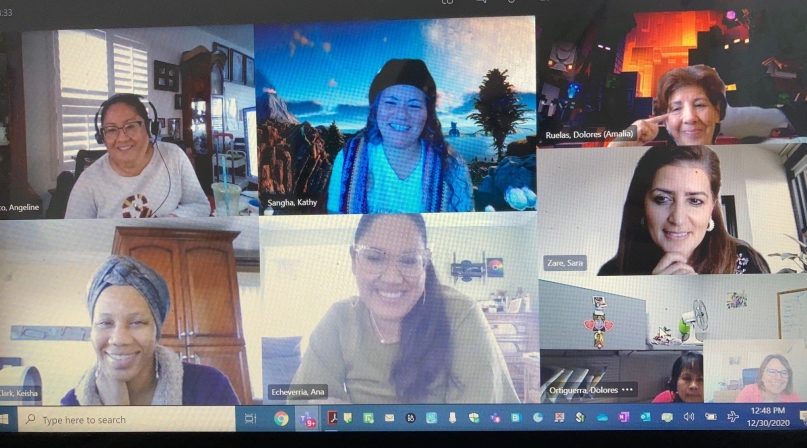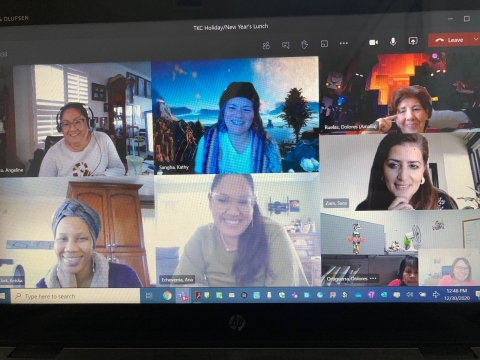More remote work means need for more virtual trainings
Author
Upcoming Events
Related News

Key Takeaways
In San Diego County, Calif., over 70 percent of the Health and Human Services Agency made the switch to working remotely when the pandemic started.
The change brought on new challenges for supervisors who had to adjust to the “new normal” without ever managing employees in a virtual setting.
San Diego County created its own Managing Remote Employees training to equip supervisors and managers with the tools needed to properly manage employees in a virtual environment.
The three-hour, interactive training identifies factors that make remote work challenging, teaches managers how to manage employees’ productivity, identifies ways to support remote employees and build an inclusive remote structure.
Staff Development Coordinator Karen Harris, who helped develop the training program, said the agency’s Knowledge Center realized in the summer of 2020 remote work would continue longer than many had thought, creating a need for supervisors to learn how to manage effectively on a long-term basis.
“I think the focus at the beginning was just to make sure everybody had the right technology to do their work,” she said. “But after that got established, we realized there’s more to supervising people.”
Harris co-teaches the training, which took 80 hours to develop. The training teaches managers how to address challenges employees may face at home such as with childcare, feelings of isolation or even losing family members to COVID.
“What we wanted to consider is that this is not your typical remote work situation. This is a pandemic remote work situation.”
Over 300 supervisors and managers participated in the training with 97 percent of attendees reporting they acquired strategies to improve employee productivity and performance.
In the remote environment, supervisors struggled with micromanagement, undermanagement and feelings of distrust with managing employees remotely, Harris said. Strategies in the training focused on building trust and focusing on outcomes to measure productivity. For many organizations, Harris said training took a backseat during the pandemic.
“I think training is often seen as one of those things that you can delay if needed or it’s not always a high priority, but I think that people were really kind of starved for information,” she said.
Community Health Program Specialist Lori Jones, who has elected to work from home permanently and manages a team of interns, completed the training.
“I learned a lot about ideas for team building and recognition,” she said.
Senior Office Assistant with the Resource Family Approval Program Dalenesha Lynch, who supervises nine people, said the training taught her the importance of using different communication channels to stay in touch with supervisees in more approachable ways.
“The training helped me zoom in on a few things that I never really thought would help increase the unit’s morale,” she said, describing how her team played games like “two truths and a lie” and completed scavenger hunts to become more comfortable in a virtual environment.
Harris said San Diego County noticed a reduction in its carbon footprint that resulted from teleworking and is looking at ways for employees to continue working remotely or in a hybrid model.
She added that fewer employees are taking sick time and productivity levels have remained the same during the transition with the help of tools managers learned during the training.
“I think people do want training and they do need training and it’s just not to forget about how to support the workforce,” she said.

Attachments
Related News

Counties attract talent by stressing public service appeal
Whether they’re up in the mountains or surrounded by millions of potential job candidates, counties face challenges recruiting talent to enter the public sector job market.
Interim county administrators bridge the gap and offer seasoned experience
After long careers in administration, some professionals relish a chance to help counties out for short stints when their Boards are in transition.

